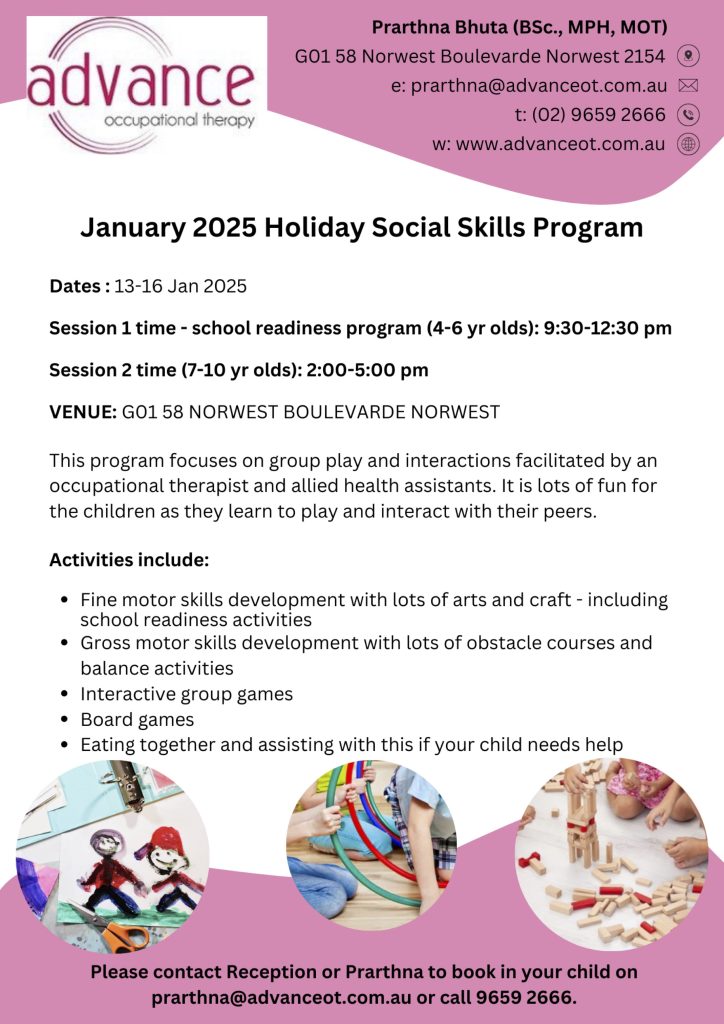Dates: 13-16 Jan 2025
Session 1 time – school readiness program (4-6 yr olds): 9:30-12:30 pm
Session 2 time (7-10 yr olds): 2:00-5:00 pm
VENUE: G01 58 NORWEST BOULEVARDE NORWEST
This program focuses on group play and interactions facilitated by an occupational therapist and allied health assistants. It is lots of fun for the children as they learn to play and interact with their peers.
Activities include:
- Fine motor skills development with lots of arts and craft – including school readiness activities
- Gross motor skills development with lots of obstacle courses and balance activities
- Interactive group games
- Board games
- Eating together and assisting with this if your child needs help
Please contact Reception or Prarthna to book in your child on prarthna@advanceot.com.au or call 9659 2666.


 Improved fine motor skills are one of the main advantages; these are necessary for activities like writing, buttoning clothing, and self-feeding. Children who receive occupational therapy work on exercises that improve their dexterity, strength, and coordination. Early occupational therapy can also help children who suffer with overstimulation or under-responsiveness to sensory input by addressing sensory processing problems. Children can learn more efficiently and interact with their world more effectively if they have greater sensory modulation. Occupational therapists teach strategies for task management and attention regulation in addition to creating activities to enhance fine motor coordination for tasks like handwriting and tool use. Better planning, concentration, and memory all help students perform better academically and participate more actively in class.
Improved fine motor skills are one of the main advantages; these are necessary for activities like writing, buttoning clothing, and self-feeding. Children who receive occupational therapy work on exercises that improve their dexterity, strength, and coordination. Early occupational therapy can also help children who suffer with overstimulation or under-responsiveness to sensory input by addressing sensory processing problems. Children can learn more efficiently and interact with their world more effectively if they have greater sensory modulation. Occupational therapists teach strategies for task management and attention regulation in addition to creating activities to enhance fine motor coordination for tasks like handwriting and tool use. Better planning, concentration, and memory all help students perform better academically and participate more actively in class.



